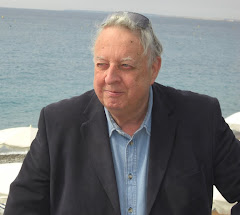The Consort of Viols died out after the middle of the 17
th
century, and it is highly doubtful whether Johann Sebastian Bach ever
heard one. I was fascinated and impressed listening to a new CD from
the Consort called
Phantasm where it plays arrangements of
twenty preludes and fugues by Bach, plus occasional ricercars and
other pieces. These arrangements underline several aspects of Bach's
music: his extreme harmonic daring at times (a bit like Henry
Purcell), the complexity of his musical textures, the fact that Bach
translates and transcribes happily for pretty well any instrumental
combination – including some he would never have imagined, like a
consort of viols – and how Bach's music was often rooted in the
world of the 17
th century rather than in the new 18
th
century world heavily influenced by the Italians. I am not a fan of
“olde worlde string playing”, but Phantasm's viols have a rich
and highly mellow sound, quite unlike the rasp and squeal of
“baroque” string players. These performances increase my already
enormous admiration for Bach's music. Highly recommended for a new
musical experience and for a real
revelation of Bach's
preludes and fugues.
Bach's music can adapt to pretty well
any instrumental combination. Not so Beethoven's string quartets that
are firmly embedded in two violins, one viola, and one cello. Eminent
conductors as diverse as Furtwängler and Klemperer conducted the
Grosse Fuga with string orchestras, and Toscanini conducted
the sixteenth quartet with a string orchestra. But these attempts at
“orchestrating” Beethoven's chamber music really did not work and
are now merely historical curiosities (although I still have much
admiration for Klemperer and the Philharmonia in the Grosse Fuga, a
recording I have known since the mid- 1950s).
“What do I care about your miserable
fiddle when the spirit speaks to me?” Beethoven is alleged to have
asked Ignaz Schuppanzigh when the quartet leader expressed qualms
about playing the Grosse Fuga. Benjamin Britten remarked, with
prescience, that “that was where the rot set in” (composers
thumbing their noses at performers and audiences). My initial great
enthusiasm for Beethoven's music has somewhat waned over the decades;
but my allegiance to the late string quartets has never wavered. This
is truly great music. I seized with alacrity a new CD from the
Tetzlaff Quartett that couples the A minor quartet opus 132 with the
B flat quartet opus 130. The Tetzlaff players still favour somewhat
extreme dynamics, but this is wonderful music with superb playing and
recording (Ondine). Quite rightly, the Tetzlaffs omit Beethoven's
get-you-home finale for opus 130 and end the work with the great
fugue that so intimidated Schuppanzigh. The fugue is a perfect finale
after the sublime Cavatina. With the Pavel Haas Quartet and the
Tetzlaff Quartett, I am spoilt for choice when it comes to
favourite contemporary string quartets.
